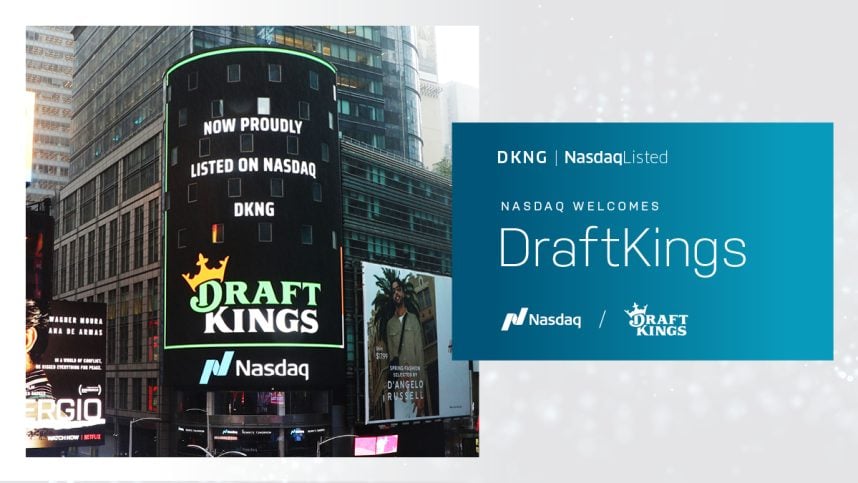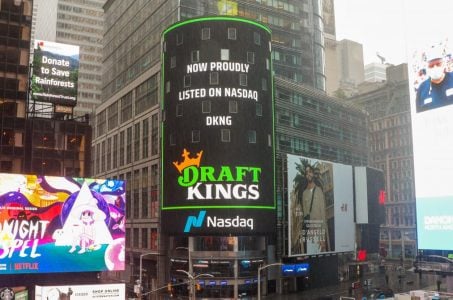DraftKings’ Illinois-Induced Sell-Off Exaggerates Contagion Risk, Says Analyst
Posted on: May 29, 2024, 04:02h.
Last updated on: May 30, 2024, 10:19h.
Shares of DraftKings (NASDAQ: DKNG) dipped slightly on Wednesday following a Tuesday tumble caused by news that Illinois will implement a progressive sports wagering tax that will saddle the largest operators by revenue with the biggest tabs.

That means DraftKings and FanDuel parent Flutter Entertainment (NYSE: FLUT) could see their Illinois tax rates surge to 36% and 37%, respectively, from the current levy of 15%. It was widely expected that Illinois, which is staring down a budget deficit, would increase sports wagering taxes, but investors are spooked by the specter of other states following suit. Some analysts view “contagion risk” as limited.
While we acknowledge accelerating regulatory headwinds, we believe the initial pullback overstates risk of ‘contagion’ while efforts to raise tax revenues read favorably for potential renewed iCasino expansion momentum,” wrote Stifel analyst Jeffrey Stantial in a note to clients.
Stantial reiterated a “buy” rating on DraftKings with a $50 price target, down from $51, implying upside of about 39% from Wednesday’s close.
Illinois Tax Policy Takes Aim at DraftKings, FanDuel
Illinois isn’t intentionally targeting DraftKings and FanDuel, but the structure of the state’s new sports wagering tax puts the largest operators on the defensive.
Those are DraftKings and FanDuel, which by some estimates, control 70% to 75% of the US online sports wagering market. The new policy in Illinois, which is scheduled to go into effect on July 1, calls for the sportsbook operators generating the most revenue to pay bigger percentages of adjusted gaming revenue (AGR) to the state while smaller competitors could see tax liabilities reduced.
“Under the new regime, operators would pay 20% on AGR up to $30M; 25% on $30-50M; 30% on $50-100M; 35% on $100-200M; and 40% on >$200M,” added Stantial.
The analyst observed the new tax landscape in the Midwest state “disproportionately impacts DraftKings/FanDuel,” and that operators are likely to reduce promotional spending there in line with the tax increase. Stantial also said marketing spending in Illinois could be reduced as an avenue for gaming companies dealing with increased tax bills.
Higher Odds Unlikely
In railing against the Illinois tax proposal, gaming industry trade groups claimed the effects would be felt by bettors who would likely be subject to longer odds on games as operators attempt to deal with the higher levies. However, some groups assailed that industry tactic, calling it dubious while noting that when sports wagering tax increases have been implemented in mature markets, bettors haven’t been adversely affected.
Stantial said there’s little evidence to support the notion odds worsen as sports betting tax regimes change, citing Europe and some US states as confirmation of that assertion.
“Bottom line, we see material, but manageable, direct impact from the proposed tax system change to DraftKings/FanDuel. We forecast only modest impact for other operators in the state, with the progressive tax system limiting derivative offsets from market share consolidation historically observed around tax rate hikes,” concluded the analyst.
Related News Articles
Elys Game Technology Rallies on DC, US Expansion Plans
Most Popular
Mirage Las Vegas Demolition to Start Next Week, Atrium a Goner
Where All the Mirage Relics Will Go
Most Commented
-
Bally’s Facing Five Months of Daily Demolition for Chicago Casino
— June 18, 2024 — 12 Comments
















No comments yet